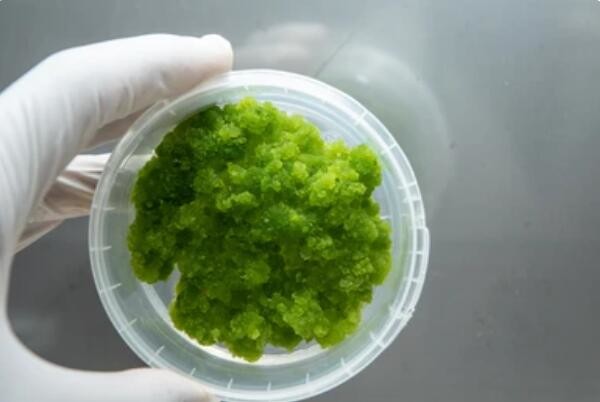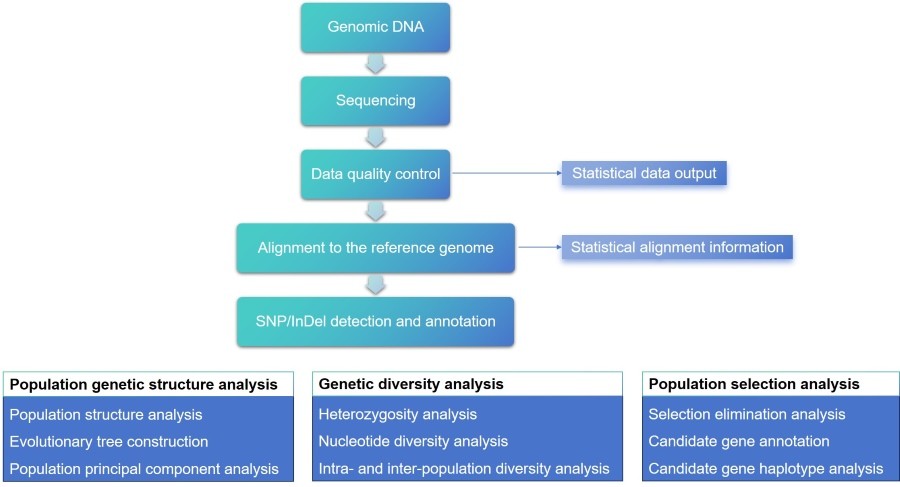Population Evolution Studies in Tissue-Cultured Plants
Through population evolutionary studies, researchers can not only understand the phylogeny of a population but also uncover functional genes subject to selection and reveal the historical dynamics of populations. Lifeasible obtains highly accurate genetic variation information (e.g., SNP, Indel, etc.) from different populations through whole-genome resequencing or simplified genome sequencing technologies. Based on this information, we support you in exploring biological questions such as the origin of populations, genetic structure, gene exchange, and adaptive evolution.
What is Population Evolution?
The study of population evolution can obtain information about the variation of species, and thus the genetic characteristics of groups of organisms. The study of population evolution can provide a theoretical basis for the genetic breeding of plants and animals and the conservation of endangered plants and animals. It can also provide biological evidence for the study of changes in the earth's geology, ecology, climate, and historical human activities.

Whole genome resequencing or simplified genome sequencing of different subgroups in the natural population of a species, and obtaining a large amount of highly accurate information on SNPs, InDel, and other variants through comparison with reference genomes or cluster analysis. This enables researchers to further study the genetic structure of the population, genetic diversity analysis, and selection analysis, and then reveal the evolutionary mechanism of the species, the evolutionary dynamics, and course of the population, gene exchange, environmental adaptability, and other issues at the molecular level.
What We Offer
We utilize whole-genome resequencing or simplified genome sequencing (dd-RAD) technology to obtain genomic information on subgroups of a species' natural population. A large amount of variation information is obtained by comparison with reference genomes or cluster analysis. Based on the SNP information, we can help you discuss the genetic structure of the population, gene exchange, the mechanism of species formation the evolutionary dynamics of the population, and other biological issues.
- Genetic diversity of the population: through the mutual verification of various analytical methods such as phylogenetic tree, principal component analysis, and population structure analysis, we can accurately analyze the kinship and differentiation of each subgroup, and provide a scientific basis for the study of the evolutionary history of the population.
- Gene exchange: through studying the source and proportion of genetic material of each subgroup, we can explore the gene exchange situation of each subgroup and speculate the possible migration routes of each subgroup, to provide a scientific basis for revealing the phenotypic diversity of the group.
- Functional gene mining: through population selection analysis, we can explore the polymorphism and differentiation degree of each subpopulation, and mine the functional genes related to important traits, which play an important role in guiding the agricultural breeding work.
- Population evolution dynamic analysis: based on the genomic variation information, we can speculate the differentiation time of different subpopulations and estimate the change of effective population size during the evolution process, which can provide the scientific basis for exploring the formation and evolution law among subpopulations and the protection of valuable species.
Technology route

Sample Requirements
| Sample type |
Sample concentration |
Total sample volume |
Second-generation sequencing depth |
| DNA |
≥10 ng/μL |
≥1 μg |
≥10 × |
| Plant tissue |
- |
≥2 g |
| Reference genomes are available, with at least 15 samples from each population of plants and at least 3 populations. For special tissue culture plant samples, please contact our technical support staff for specific sample requirements. |
Please feel free to contact us for more information about the population evolution studies in tissue-cultured plants.
You want to sign a confidentiality agreement.
You have a specific plant species for your experimental needs.
You have a reliable and relevant cooperation project to discuss.
You are very interested in our project or have any questions.
You need an updated and detailed quotation.
For research or industrial use.




